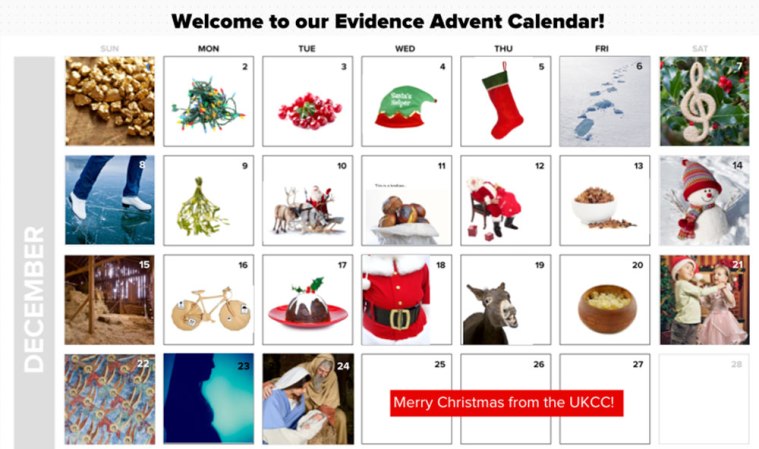It turns out that Cochrane’s for Christmas, not just for life, with evidence in the Cochrane Library on all manner of festive things from gold, frankincense and myrrh to stockings! Ok, some of the links are a bit tenuous, but we hope you’ll enjoy our advent calendar.
Owing to some trouble with the technology elves, we couldn’t make it interactive (boo!) but each day we’ll post some Cochrane evidence related to the day’s picture, below the calendar. If you think of any others, do share them via the comments box.

